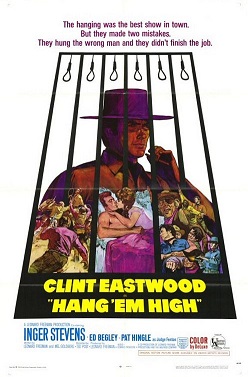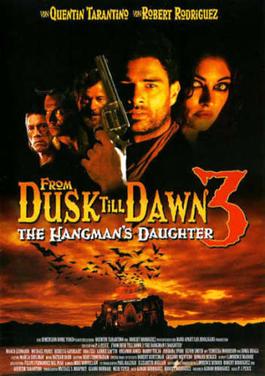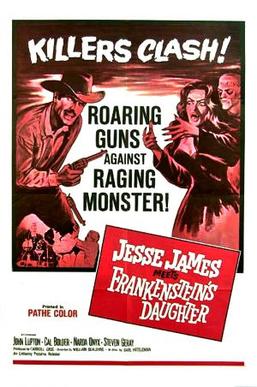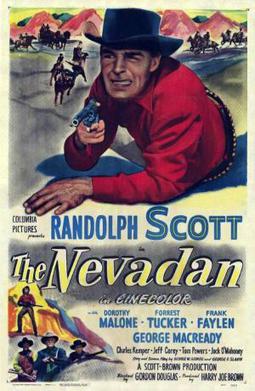
Stagecoach is a 1939 American Western film directed by John Ford and starring Claire Trevor and John Wayne in his breakthrough role. The screenplay by Dudley Nichols is an adaptation of "The Stage to Lordsburg", a 1937 short story by Ernest Haycox. The film follows a group of strangers riding on a stagecoach through dangerous Apache territory.

Tina Louise is an American actress widely known for her role as movie star Ginger Grant in the CBS television situation comedy Gilligan's Island. Louise is the last surviving cast member of the TV series.

William Doolin was an American bandit outlaw and founder of the Wild Bunch, sometimes known as the Doolin-Dalton Gang. Like the earlier Dalton Gang alone, it specialized in robbing banks, trains, and stagecoaches in Arkansas, Kansas, Indiana, and Oklahoma during the 1890s.

Fess Elisha Parker Jr., was an American film and television actor best known for his portrayals of the titular characters in the Walt Disney television miniseries Davy Crockett and the long-running television series Daniel Boone. He was also a winemaker and resort owner-operator.

Hang 'Em High is a 1968 American DeLuxe Color revisionist Western film directed by Ted Post and written by Leonard Freeman and Mel Goldberg. It stars Clint Eastwood as Jed Cooper, an innocent man who survives a lynching; Inger Stevens as a widow who helps him; Ed Begley as the leader of the gang that lynched Cooper; and Pat Hingle as the federal judge who hires him as a Deputy U.S. Marshal.

3:10 to Yuma is a 1957 American Western film directed by Delmer Daves, starring Glenn Ford and Van Heflin. Based on a 1953 short story by Elmore Leonard, it is about a drought-impoverished rancher who takes on the risky job of escorting a notorious outlaw to justice. In 2012, it was selected for preservation in the United States National Film Registry by the Library of Congress as "culturally, historically, or aesthetically significant". The film was remade in 2007, directed by James Mangold and starring Russell Crowe with Christian Bale.

Colorado Territory is a 1949 American Western film noir directed by Raoul Walsh and starring Joel McCrea, Virginia Mayo, and Dorothy Malone. Written by Edmund H. North and John Twist, and based on the novel High Sierra by W.R. Burnett, the film is about an outlaw who is sprung from jail to help pull one last railroad job.

From Dusk Till Dawn 3: The Hangman's Daughter is a 1999 American Western horror film directed by P. J. Pesce. It serves as a prequel to the 1996 film From Dusk till Dawn. It was released directly to video and was nominated at the 26th Saturn Awards for "Best Home Video Release". In late 2010, the production of a fourth film in the series was discussed, but, as of August 2012, further work on this possibility has not been revealed. In late 2013, a TV series began a production.

Bandolero! is a 1968 American Western film directed by Andrew V. McLaglen and starring James Stewart, Dean Martin, Raquel Welch and George Kennedy. The story centers on two brothers on the run from a posse, led by a local sheriff who wants to arrest the runaways and free a hostage that they took along the way. They head into the wrong territory, which is controlled by "Bandoleros".

Jesse James Meets Frankenstein's Daughter is a low-budget horror Western film released in 1966, in which a fictionalized version of the real-life western outlaw Jesse James encounters the fictional granddaughter of the famous Dr. Frankenstein. The film was originally released as part of a double feature along with Billy the Kid Versus Dracula in 1966. Both films were shot in eight days at Corriganville Movie Ranch and at Paramount Studios in mid-1965; both were the final feature films of director William Beaudine. The films were produced by television producer Carroll Case for Joseph E. Levine.

Ride Lonesome is a 1959 American CinemaScope Western film directed by Budd Boetticher and starring Randolph Scott, Karen Steele, Pernell Roberts, Lee Van Cleef, and James Coburn in his film debut. This Eastmancolor film is one of Boetticher's so-called "Ranown cycle" of westerns, made with Randolph Scott, executive producer Harry Joe Brown and screenwriter Burt Kennedy, beginning with Seven Men from Now.

Good Day for a Hanging is a 1959 American B Western film directed by Nathan H. Juran and starring Fred MacMurray and Margaret Hayes.

Westward Ho is a 1935 American Western film directed by Robert N. Bradbury. It stars John Wayne and Sheila Bromley, with Yakima Canutt in a supporting role. Released by the recently created Republic Pictures, it was produced by Paul Malvern who had previously released his John Wayne Lone Star Westerns for Monogram Pictures. According to AllMovie, it is the earliest revisionist Western – the hero, John Wyatt (Wayne), leads a band of vigilantes on a quest for revenge.

Day of the Outlaw is a 1959 American western film starring Robert Ryan, Burl Ives, and Tina Louise. It was directed by Andre DeToth; this was DeToth's final Western feature film.

Young Bill Hickok is a 1940 American Western film directed by Joseph Kane and starring Roy Rogers.

The Nevadan is a 1950 American Western film directed by Gordon Douglas and starring Randolph Scott, Dorothy Malone, Forrest Tucker, Frank Faylen, and George Macready. Written by George W. George and George F. Slavin, the film is about a mysterious stranger who crosses paths with an outlaw bank robber and a greedy rancher. The Nevadan was filmed in Lone Pine, California.

Arizona Bound is a 1941 American Western film directed by Spencer Gordon Bennet. This is the first film in Monogram Pictures' Rough Riders series, and stars Buck Jones as Marshal Buck Roberts, Tim McCoy as Marshal Tim McCall and Raymond Hatton as Marshal Sandy Hopkins, with Luana Walters, Dennis Moore and Kathryn Sheldon.
Gun Brothers is a 1956 American Western film starring Buster Crabbe and Ann Robinson. It was Crabbe's first feature film in six years.
The Lynching of the Ruggles brothers took place on July 24, 1892 in Redding, California.

The Raiders is a 1952 American Technicolor Western film directed by Lesley Selander and starring Richard Conte and Viveca Lindfors. It was produced and distributed by Universal Pictures. It was later reissued as Riders of Vengeance.

















